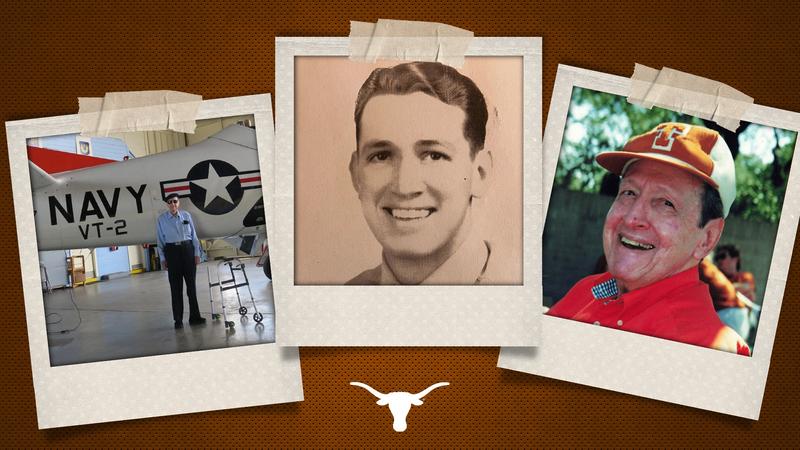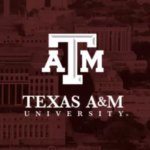Texas Lottery Veteran Recognition: Stan M. Brooks
Stan M. Brooks has served his country and greater global community as both a protector of freedom and shepherd of opportunity and achievement. First, Brooks joined the U.S. Army Air Forces and was assigned as a crew member whose unit operated low-flying attack bombers during the Mediterranean combat campaign of World War II. Then, following his military career from 1943-45, Brooks went on to serve as a public school teacher, counselor and administrator throughout Texas, guiding and opening pathways for tens of thousands of students.
“I planned to be a doctor, but reflecting back, this is exactly what I should have been doing,” said Brooks. “You don’t make a lot of money, but I loved it in relation to working with young people. I know for whatever reason that this is exactly what I needed to be doing.”
Brooks was born in 1922 in Elgin, Texas, and his family relocated to Austin when Brooks was 4 years old, primarily because his parents wanted their children to be closer to quality education and attend college. Brooks graduated from Austin High School in 1940, and later enrolled at the University of Texas in 1946 after the conclusion of the war.
“Once I got back to Austin, I immediately told Mom I wanted to go to the university,” Brooks said. Interest tests had previously demonstrated that Brooks had an aptitude for people and human skills, which inspired his decision to major and eventually graduate with a degree in education in 1950.
Brooks’ first assignment was in Wellington, near the Oklahoma border, where he worked as a teacher and counselor, sponsored the school newspaper, drove a school bus and coached tennis. After one year of assisting the boxing team, when the primary coach left, Brooks’ students begged him to take over as coach, and that year the team produced a state championship.
Brooks later worked in Belton as a full-time counselor, and then was directed to Alice, Texas, where he started as a high school counselor and then was chosen as junior high principal to revive a school troubled with discipline and morale issues. He addressed the problems by talking with teachers, parents and students as groups and individuals. When working to resolve bathroom vandalization, Brooks called in the student believed to be responsible.
“I said, ‘I need your help. The bathrooms are being vandalized, just tearing us apart. You are influential, you have kids who believe in you. Can you try to figure out what is going on and remedy it?'” Brooks recalled telling the student. “After that, we had no more problems.”
As a counselor, Brooks took an individual approach and said his primary responsibility was to “help them relative to achieving whatever they wanted to achieve.”
In this role, Brooks mentored Jim Allison, who went on to become an immunologist who won the 2018 Nobel Prize for discoveries related to cancer treatment, and Raymond Johnson, who became the first Black student to graduate from Rice University and the first Black faculty member at the University of Maryland. Brooks’ work with Johnson was particularly important because Alice schools were suffering the prejudicial effects of segregation.
“I knew that some of the teachers were prejudiced. I sat with them and said, ‘Look this young man is highly intelligent. He can be a wonderful contributor to our society, and you can be part of it. I would like for you to treat him exactly like you would anybody else,'” Brooks said. “They were very helpful in helping Raymond reach his goals.”
Johnson earned a National Merit Scholarship, which he used for undergraduate study at UT and remained connected to Brooks, who had relocated to Austin to serve as counselor at Austin High School. When Johnson began advanced study at Rice, Brooks drove him to Houston and dropped Johnson off at his dorm.
“I’ve thought back, and I had almost 20,000 kids over 30-plus years. You are not totally successful with each and every one, but I believe I did have a pretty positive influence on many,” Brooks said. “I was involved with their life, not just their academics.”
Thanks to the Texas Lottery, great things are happening all across Texas. The Texas Lottery now consistently contributes more than $1.9 billion of lottery revenue each year to good causes like public education and veterans’ assistance programs. Beginning with the first veterans’ dedicated scratch ticket game in 2009, the Texas Lottery has now contributed over $223 million to the Fund for Veterans’ Assistance.
Since 1992, the Texas Lottery has generated $37.9 billion in revenue for the state of Texas. Through strict adherence to their vision, mission and core values, the Texas Lottery is dedicated to ensuring that this support continues.













